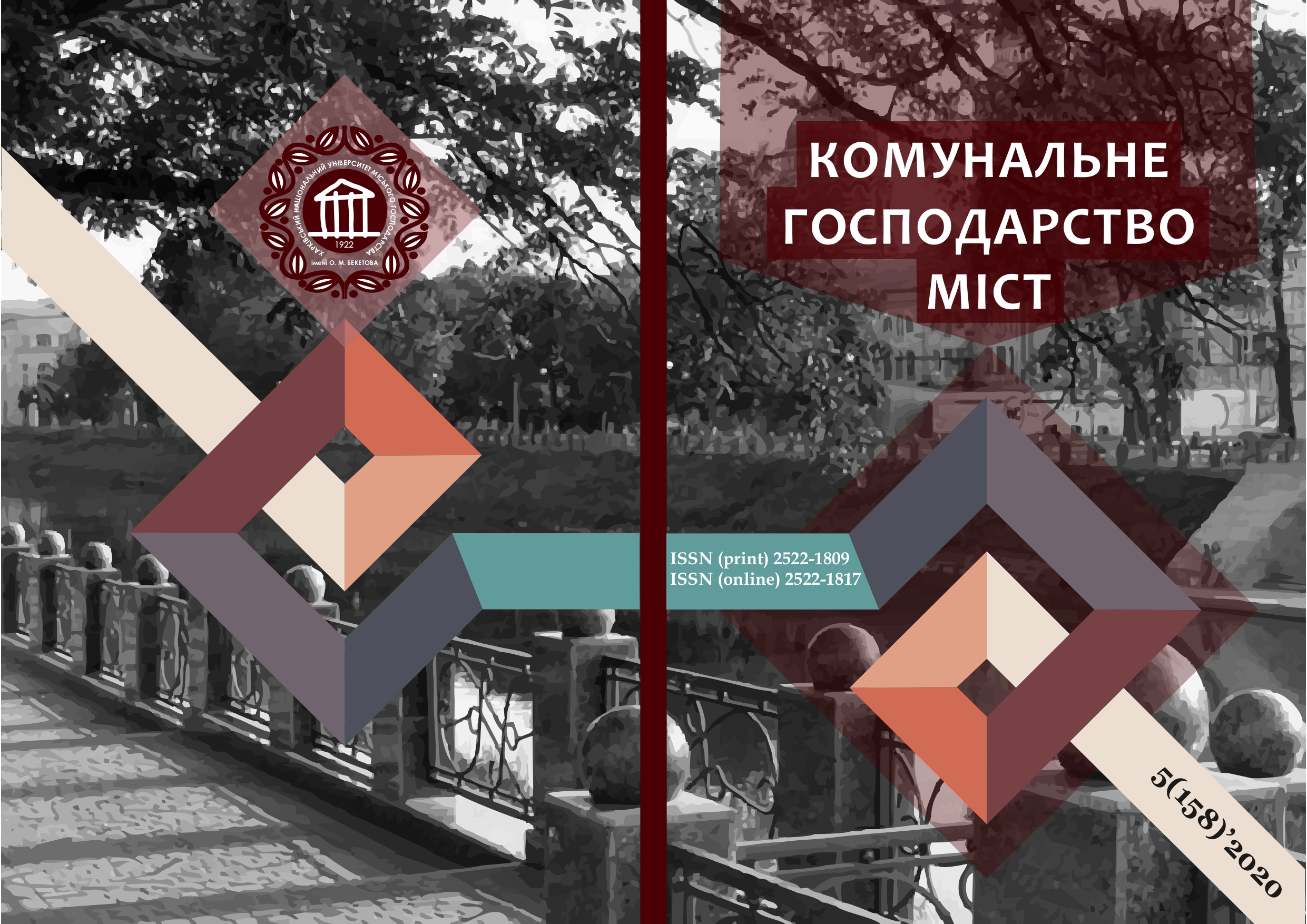GLOBAL TRENDS OF INTELLECTUALIZATION OF THE ECONOMY IN THE SYSTEM OF ENSUR-ING OF INCREASING INTERNATIONAL COMPETITIVENESS
Array
Keywords:
intellectual resources, intellectual potential, intellectual capital, intellectualization, intellectual development, information society, innovative economy, knowledge economy, intellectual economy, competitiveness.Abstract
The article states that the modern period was marked by the dominance of the information society and the implementation of the concept of intellectual development. The most developed countries have proved that it is the intellectualization of society that ensures the progress of all sectors of the national economy and increases national competitiveness. The economic essence of the categories "intellectual potential", "intellectual resources", "intellectual capital", as well as the concepts of "information economy", "innovation economy", "knowledge economy" and "intellectual economy" are revealed and their conceptual distinction is given.
The polysingle meanings of intellectual capital as a determinant of national competitive advantages in the world economy is determined: as a direct product that is consumed in a ready-made non-materialized form; as a component of a technologically new product, as capital, an investment resource, and as a factor of production. It is shown that new trends in the economy associated with the process of intellectualization have led to the emergence of a new intellect-activity culture, which determines the level of intellectual communication, which contains new forms of professional and personal connections, and is associated with the social and intellectual abilities of a person, his technical skills and technical equipment of knowledge.
The formation of intellectual resources is considered and their influence on the national socio-economic development is analyzed. The ways of solving the problems of formation of intellectual economy and creation of the mechanism of realization of intellectual possibilities of Ukraine for the purpose of increase of its competitiveness in the world market are offered.
The fact is that Ukraine still retains a certain content of intellectual potential, which, thanks to the right investment and innovation policies, can be transformed into the intellectual capital of the country to create new national competitive advantages, taking into account world requirements and national specifics of the state on the basis of the intellect-forming behavior model.
References
2. Butnik-Siverskyi O. B. (2002) Intelektualnyi kapital: teoretychnyi aspekt. Intelektualnyi kapital, 1, 16–27.
3. Vernadskij V. I. (2012) Biosfera i noosfera. Moskva: Ajris-press, 576.
4. Vizirenko S. V. (2012) Henezys poniattia «ekonomika znan». Stalyi rozvytok ekonomiky, 2 (12), 44–49.
5. Zadorozhnyj G. V., Moskvina A. O. (2004) Stadiya intellekta v modeli nacional'nyh konkurentnyh preimushchestv. Social'naya ekonomika. Nauchnyj zhurnal. Har'kov: HNU im. V. N. Karazina, 4, 21–49.
6. Zolotyh, I. B. (2014) Ekonomika znanij: osobennosti i parametry razvitiya. Efektivna ekonomіka, 11. URL: http://dspace.mnau.edu.ua:8080/jspui/bitstream/123456789/1163/1/ekonomika%20znanijStat'ya%20Zolotih.pdf (data zvernennya 15.09.2020).
7. Intelektualnyi potentsial suchasnoho svitu. 2014. URL: http://bibl.com.ua/fizika/33158/index.html (data zvernennia 15.09.2020).
8. Ivanter V. V. (2011) Trudosberezhenie kak prioritet. Ekonomist, 1, 9
9. Inozemcev V. L. (1998) Za predelami ekonomicheskogo obshchestva. Postindustrial'nye teorii i postekonomicheskie tendencii v sovremennom mire. Moskva: Academia,. 640.
10. Korol V. S. (2012) Dukhovno-intelektualna skladova stratehii rozvytku Ukrainy. Hirska shkola. URL:
http://personal.pu.if.ua/depart/volodymyr.korol/resource/file/stattia%20Hirska%20shkola%202012%2C%20Dukhovno%20–%20intelektualna%20skladova.pdf (data zvernennia 15.09.2020).
11. Logacheva V. A., Zhernov E. E. (2006) «Intellektual'nіj kapital» s pozicii trudovoj teorii stoimosti. Ekonomist, 9, 36–41.
12. Melnychenko O. (2010) Intelektualnyi potentsial Ukrainy ta yoho rozvytok. Ukrainska nauka: mynule, suchasne, maibutnie, Vypusk 14–15, 143–148. URL: http://dspace.tneu.edu.ua/bitstream/316497/26616/1/Melnychenko%20O..pdf (data zvernennia 15.09.2020).
13. Mozhajkina N. V., Moskvina A. O. (2010) Osnovy sozdaniya investicionno-intellektual'no-innovacionnoj modeli razvitiya ekonomiki Ukrainy. Ekonomіka: problemi teorії ta praktiki. Dnіpropetrovs'k: DNU, 12, 34–44.
14. Ponedilchuk T. V. (2014) Intelektualnyi kapital: sutnist ta metody otsinky. Efektyvna ekonomika, 6. URL: http://www.economy.nayka.com.ua/?op=1&z=3288 (data zvernennia 15.09.2020).
15. Posnova T. V. (2019) Rol kreatyvnoho liudskoho kapitalu v ekonomitsi znan. Modern Economics, 14, 232–236 URL: https://modecon.mnau.edu.ua/the-role-of-creative-human/ (data zvernennia 15.09.2020).
16. Sakajya T. (1999) Stoimost', sozdavaemaya znaniem, ili istoriya budushchego (Novaya postindustrial'naya volna na Zapade. Antologiya) / Pod red. V. L. Inozemceva. Moskva: Academia, 337–371.
17. Styuart T. (2007) Intellektual'nyj kapital. Novyj istochnik bogatstva organizacii. Moskva: Pokolenie, 368.
18. Chukhno A. A. (2002) Intelektualnyi kapital: sutnist formy i zakonomirnosti rozvytku. Ekonomika Ukrainy, № 11, 48–55; № 12, 61–67.
19. Shulha Zh. O. (2012) Osoblyvosti ekonomiky znan na suchasnomu etapi rozvytku suspilstva. Visnyk Berdianskoho universytetu menedzhmentu i biznesu, 1 (17), 94–99.
20. Acemoglu, D., Robinson, J. A. (2012) Why Nations Fail: The Origins of Power, Prosperity, and Poverty. Crown Publishers (New York), 571.
21. Daum J. H. (2003) Intangible Assets and Value Creation. Chichester, 421.
22. Kasiewicz S., Rogowski W. & Kiciński M. (2006) Kapitał intelektualny – spojrzenie z perspektywy interesariuszy. Krakow, Oficyna Ekonomiczna, 118.
Downloads
Published
How to Cite
Issue
Section
License
The authors who publish in this collection agree with the following terms:
• The authors reserve the right to authorship of their work and give the magazine the right to first publish this work under the terms of license CC BY-NC-ND 4.0 (with the Designation of Authorship - Non-Commercial - Without Derivatives 4.0 International), which allows others to freely distribute the published work with a mandatory reference to the authors of the original work and the first publication of the work in this magazine.
• Authors have the right to make independent extra-exclusive work agreements in the form in which they were published by this magazine (for example, posting work in an electronic repository of an institution or publishing as part of a monograph), provided that the link to the first publication of the work in this journal is maintained. .
• Journal policy allows and encourages the publication of manuscripts on the Internet (for example, in institutions' repositories or on personal websites), both before the publication of this manuscript and during its editorial work, as it contributes to the emergence of productive scientific discussion and positively affects the efficiency and dynamics of the citation of the published work (see The Effect of Open Access).

